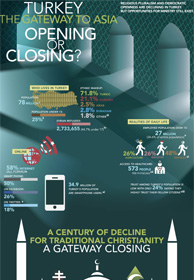Related Articles
Hand Wringing or Hard Questions?
There has been a lot of hand wringing in recent times over the decline in the number of candidates for foreign missionary service.
Hand Wringing or Hard Questions?
There has been a lot of hand wringing in recent times over the decline in the number of candidates for foreign missionary service.
Welcoming the Stranger
Presenter: Matthew Soerens, US Director of Church Mobilization, World Relief Description: Refugee and immigration issues have dominated headlines globally recently. While many American Christians view these…
From Unhealthy Dependency To Local Sustainability
Presented by: Jean A. Johnson, Executive Director of Five Stones Global Description: It takes a great amount of intentionality to create a culture of dignity,…
Is Turkey, the Gateway to Asia, Opening or Closing?
Turkey is a key gateway between Asia and Europe, but is the door opening or closing? The answer is complex but worth diving in and exploring. Take some time to go in-depth into Turkey’s demographics, relationship with Christianity and current Evangelical Church.



